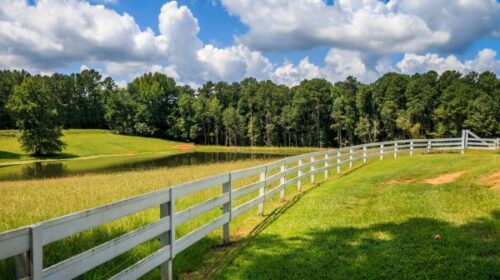Knowing the difference between private and public lands can be essential to determine your rights and obligations. Besides, specific laws and regulations should be followed when dealing with public and private lands. Otherwise, you’ll end up facing some legal problems in the future.

Hence, if you wonder what’s the difference between private and public lands, please keep reading this article to learn how these lands are different from each other:
1. Definition
Generally, public lands refer to areas collectively owned by the country’s citizens and managed by certain government authorities. In other words, most public lands are supervised by federal, state, or local governments. Most common public lands include:
- National parks;
- National forests;
- National conversation land;
- National wildlife refuges and wilderness;
- National recreation areas;
- State parks;
- Local and municipal parks.
Meanwhile, private lands are areas of land that any government agency doesn’t hold. This means private landowners enjoy exclusive use of their properties, subject to certain limitations set forth by the federal, state, and local government.
2. Management And Control
Public and private lands are also different in terms of management. For example, federally-owned lands fall under the control or supervision of the following government agencies:
- The Bureau of Land Management (BLM)
- The U.S. Forest Service (USFS)
- The U.S. Fish and Wildlife Service (USFWS)
- The National Park Service (NPS)
Moreover, the public lands owned by state and local governments are usually purchased from private parties through governmental actions, such as eminent domain and land condemnation proceedings. While these two legal terms are designed to acquire property from private individuals, they still differ. One difference is that in eminent domain, compensation is given. But, with land condemnation, no payment is offered when purchasing private land for public use.
However, there are other differences you need to know to understand the rights of the government in acquiring properties. To learn more information, you can check some reliable resources online and type in ‘eminent domain vs land condemnation‘ to obtain more accurate search results.
On the other hand, unlike public lands, private lands are exclusively managed and used by their owners. However, their use is subject to the government’s regulation of state laws and codes. One of the standard private land regulations is the land development or zoning code. This means that persons can use private lands without complying with specific state zoning codes and other related regulations.
3. Property Rights And Limitations
Since the state owns public lands, specific limitations exist when the public wants to use these lands for whatever purpose. For example, you can only hunt in certain designated areas with a valid permit. You can only go camping in designated areas in a recreational vehicle or a tent. Due to these limitations, it’s essential to check the government’s rules and regulations regarding the use of public lands for recreational activities like camping and swimming.
On the other hand, private landowners enjoy the bundle of rights that come with property ownership. This set of rights allows owners to sell, alienate, lease, use, control, and enjoy their private lands. However, their rights to their lands are still subject to certain government restrictions. For instance, private landowners are subject to payment of property taxes compared to public lands.
Furthermore, all private lands may be subject to other government restrictions, including the following:
- Municipal governments can impose certain taxes to cover local expenses.
- As mentioned earlier, the federal, state, or local government has the right to exercise its eminent domain power to acquire private lands from landowners for public use with just compensation. Hence, if you receive a government letter stating their plan to take your private land, it’s best to hire a lawyer to undertake the process. They can help explain your rights and ensure the process runs smoothly without problems.
- Your rights to your private land may also be restricted through the government’s exercise of police power. For example, they can put certain restrictions on your property to establish regulations that promote the health, safety, and overall welfare of the general public. A common example is the imposition of taxes on the use of private real properties.
- Suppose you die without a will and heirs and beneficiaries. In that case, the government can file an escheat proceeding to take over your private real property, which has no owner upon your death.
These are some restrictions imposed by the government on private landowners. Make sure to familiarize yourself with these governmental actions to protect your rights and real property.
Final Thoughts
There are so many things to learn about public and private lands. If you own properties, understanding the difference between these lands is crucial to avoid any legal trouble later on. Therefore, keep the above information in mind to know how public lands differ from private lands. Consequently, you’ll know the dos and don’ts and other matters concerning public and private real properties.





